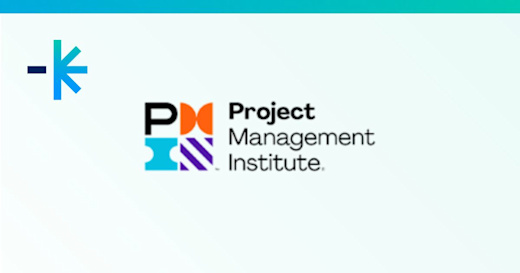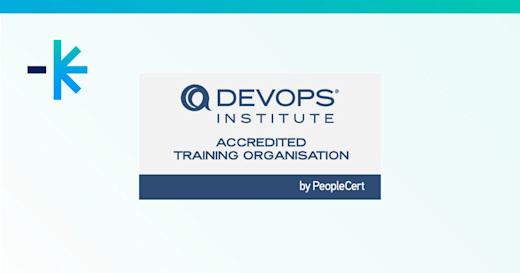With digital crime a looming threat in Australia’s ICT landscape (causing a whopping 78.68% rise in data loss and theft in 2018), cybersecurity has deservedly earned top priority among businesses.
However, with the plethora of services, products, and expert advice available – how do you know your measures are enough? Is it possible you’re investing in more than necessary, or are falling behind the latest tools, developments, and practices?
Below, we’ve designed a comprehensive guide to determine whether your business passes the test of basic cybersecurity, or if extra protection is in order.
Are you using the right tools?
For robust protection, businesses are encouraged to use quality cybersecurity tools and services (typically using multiple in conjunction with one another, for added layers of security). New updates and developments emerge by the year, so it’s crucial to keep you and your business up to date.
In general, all businesses are recommended to use the following:
Firewalls: Network firewalls are essential in monitoring your incoming and outgoing traffic, preventing any unwanted or unauthorised access from passing thorough. Some may come with VPN features for added protection.
VPN: VPNs, also known as “Virtual Private Networks” can help mask you and your employees’ identities, protecting their devices under the guise of a new IP address and location. They also allow safe remote access by encrypting the traffic between a user and their company network.
Password management: Hackers prey on the laziness of users, including the tendency of many to use a single password for all their online accounts. To further protect your data, experts suggest a new password for each account; though these can be easy to lose track of. Password management tools, however, keep an organised archive of all your passwords – encrypting the database for further protection.
Anti-virus software: It goes without saying – but a reliable and updated anti-virus tool can help keep malicious programs and malware at bay. Quality anti-virus software can detect, block, and remove such programs – including ransomware, keyloggers, trojan horses, adware, and spyware.
Backup and recovery tools: Finally, software that automates data backups ensures you continually have safe copies of your files and folders in the case of a breach or system crash.
However, using one tool as a sole solution may not provide you with the solid security you require. Firewalls, for example, are only 60% effective against malware. Companies are often recommended to layer up their cybersecurity – using multiple tools at time – for that extra protection and peace of mind.
Do you have the right policies in place?
To establish the importance of cybersecurity in the workplace (and to help avoid careless online activity), it helps to have clear security policies set in place.
A strong policy should cover the controls you intend to implement, these including:
The tools and programs you wish to use, such as anti-virus, anti-malware, and firewall programs
The process by which company data will be backed up (ex. Will you be backing up to the cloud? Will the process be automated? What other safeguards – such as encryption and multi-factor authentication – do you intend to use for the platform?)
The process by which your security software will be patched and updated
You must also address the roles and responsibilities under your policies; such as the person responsible for enforcing them, the expert responsible for training others on security awareness, and who will take charge of dealing with and resolving security incidents.
The Australian government website also encourages business owners to consider seven aspects of cybersecurity: password requirements for all employees (including how to store and update them), building awareness of secure e-mail practices, training workers on handling sensitive data, setting rules on handling technology (ex. restrictions on the use of removable devices, how to report a stolen or lost work device), regulating social media and internet access, proper incident response, and how to keep policies relevant and up-to-date.
Is your hardware and software up to date?
On the outset, old hardware and software may not seem like a major issue (they may not be damaged or broken, after all) – but they leave you vulnerable to new and ever-evolving threats with weak defences and outdated firmware.
By regularly updating your software, you ensure that any security holes or bugs are identified, assessed, and repaired before further damage takes place. These updates may also provide you with new security features, or improve existing ones – leaving you with strong, reliable performance; and the latest and greatest tools you deserve.
Having updated cybersecurity can also help retain customer trust (or gain that of new ones), maintaining – or even increasing – your business sales. These measures are a high priority among consumers, with two-thirds (70%) of Australian buyers willing to jump ship if a business experiences a data breach.
Of course, keeping to the latest, reliable network equipment is just as important. Hackers can easily find security weaknesses in old hardware, with many incompatible with the latest security software (causing slow, inefficient performance).
As a rule of thumb, experts recommend replacing any computers in your business that are more than 3 years old. You’ll additionally enjoy an upgrade to better memory and a far more efficient operating system.
Do you perform regular audits and assessments?
To ensure all aspects of your network are in good health, it helps to have periodic security audits in place. These assessments also play a vital part in keeping your business compliant with government-outlined security standards.
Regular audits of your cybersecurity measures can help bring to light any holes or vulnerabilities in your current defence systems. They help you identify any gaps in your security controls, allowing you to implement new safeguards as necessary. Performing audits also ensures that your controls are still working as required, or if adjustments are needed. For example, you may find that network scans are required on an even more frequent basis than expected, that a risk was left unmitigated, or that certain computers or software are still in need of an update.
Audits can be made both externally and internally. An external process would require an accredited auditor to assess a business’ current security controls against a recognised or established standard.
Internal audits are performed by the workers of the business, and are less costly and quicker to do – though are generally done as “practice runs” before the company proceeds with an external audit.
Are your workers involved?
Finally, a solid cybersecurity system requires all individuals onboard to work.
It’s important to not only train employees on basic security practices (these including avoidance of phishing scams, suspicious links, proper password hygiene, and awareness of common threats) – but to encourage them to pursue continuous learning; keeping their knowledge updated on the latest security trends, developments, and cybercrime tactics.
With human error accounting for one-third (33-37%) of Australia’s data breaches, the need for sound employee training is vital. On top of skills in cybercrime prevention, businesses can also benefit from educating employees in identifying, managing, and eliminating potential threats (or how to report them).
By getting everyone equipped in cybersecurity, you’re effectively diminishing the most popular entry point for hackers – the people in your business, themselves.
Invest in quality cybersecurity training
Whether your business ticks everything off our list, or you’ve discovered the need for additional investments – pursuing further training and education in cybersecurity never hurts.
In fact, it’s recommended; with annual developments in the field, both business managers and employees can benefit from expanding their knowledge in this ever-growing industry.
Lumify Work (Australia’s leading provider in corporate IT training) offers multiple programs in cybersecurity, with certifications under global leading providers such as CompTIA and (ISC)2. Students can learn both the fundamentals and technicalities of various security roles, with 100% online delivery – helping them tailor their study according to personal needs and commitments.
Foster a safer, security-educated workforce – and enquire with us on a course today.











